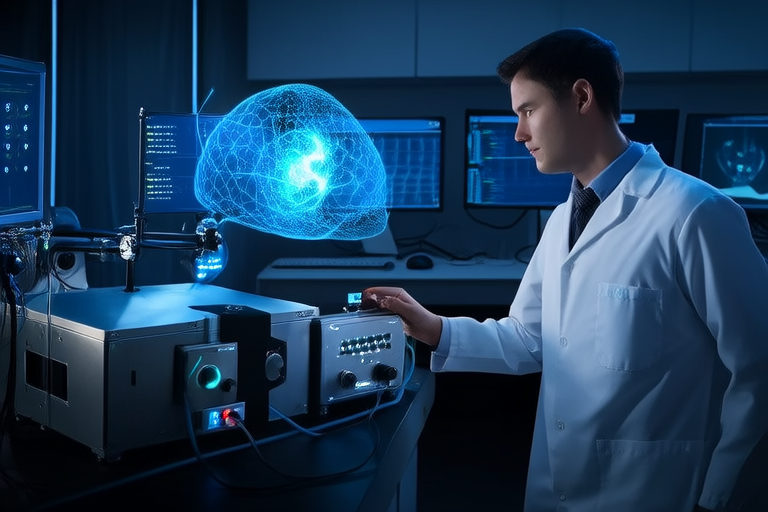“`html
AI Unleashed: Innovations and Opportunities in Diverse Industry Verticals
Introduction
Artificial Intelligence (AI) has emerged as a transformative force across various industries, fundamentally altering business processes and decision-making. As AI technologies continue to evolve, they are becoming indispensable tools for organizations seeking to enhance efficiency, drive innovation, and gain a competitive edge. From healthcare to agriculture, the global adoption of AI is accelerating, with businesses leveraging these advanced technologies to solve complex problems and create new opportunities.
The transformative impact of AI extends beyond mere automation; it enables data-driven insights that inform strategic decisions, optimize operations, and improve customer experiences. This article explores the diverse applications of AI across multiple industry verticals, highlighting both current innovations and future prospects.
Overview of AI Technologies
At the heart of AI’s capabilities are several key technologies:
- Machine Learning (ML): ML algorithms learn from data to make predictions or decisions without explicit programming. Applications range from image recognition to predictive analytics.
- Deep Learning (DL): A subset of ML that uses neural networks to model complex patterns. DL powers many cutting-edge applications, such as speech recognition and autonomous driving.
- Natural Language Processing (NLP): NLP enables machines to understand, interpret, and generate human language. It is widely used in chatbots, voice assistants, and sentiment analysis.
- Computer Vision: Computer vision allows machines to interpret visual information from images or videos. It finds applications in facial recognition, object detection, and medical imaging.
- Robotics: Combining AI with robotics creates intelligent machines capable of performing tasks autonomously. These robots are employed in manufacturing, logistics, and even healthcare.
These technologies are being applied across various sectors, driving innovation and efficiency.
Healthcare
In healthcare, AI is revolutionizing personalized medicine, diagnostics, drug discovery, and patient care. Machine learning algorithms analyze vast amounts of medical data to identify patterns and predict outcomes, enabling more accurate diagnoses and personalized treatment plans.
For example, IBM Watson for Oncology uses AI to assist oncologists in developing personalized cancer treatment plans based on patient data. Similarly, Google’s DeepMind has developed AI models that can detect eye diseases with near-human accuracy. AI also plays a crucial role in drug discovery by identifying potential drug candidates faster and more efficiently than traditional methods.
Finance and Banking
The finance and banking sector has seen significant advancements due to AI integration. AI-driven systems are employed for fraud detection, risk management, algorithmic trading, and customer service. For instance, AI-powered fraud detection systems can analyze transaction data in real-time to identify suspicious activities and prevent fraudulent transactions.
Algorithmic trading relies on AI to execute trades at optimal times, improving profitability and reducing risks. In customer service, chatbots powered by NLP provide instant responses to customer inquiries, enhancing the overall customer experience. Additionally, AI-driven credit scoring models assess creditworthiness more accurately and fairly than traditional methods.
Retail and E-commerce
In retail and e-commerce, AI enhances customer experience, inventory management, supply chain optimization, and personalized marketing. Recommendation engines powered by AI analyze customer behavior to suggest products tailored to individual preferences, increasing sales and customer satisfaction.
Chatbots provide 24/7 customer support, answering queries and resolving issues promptly. AI also optimizes inventory management by predicting demand and ensuring stock levels are maintained efficiently. Furthermore, AI-driven supply chain solutions streamline logistics, reducing costs and improving delivery times.
Manufacturing and Logistics
AI is transforming manufacturing and logistics through predictive maintenance, quality control, autonomous vehicles, and optimizing logistics operations. Predictive maintenance uses AI to forecast equipment failures before they occur, minimizing downtime and maintenance costs.
Quality control systems powered by computer vision inspect products for defects in real-time, ensuring high standards of quality. Autonomous vehicles and drones are increasingly used in logistics to transport goods efficiently and safely. AI-driven automation improves efficiency and reduces costs, contributing to smarter and more sustainable manufacturing practices.
Education
In education, AI is being applied to personalized learning, adaptive assessments, virtual assistants, and educational analytics. Personalized learning platforms use AI to tailor educational content to individual students’ needs, promoting better learning outcomes.
Adaptive assessments adjust the difficulty of questions based on student performance, providing more accurate evaluations. Virtual assistants assist teachers in managing classrooms and answering student queries. Educational analytics powered by AI track student progress and provide insights to educators, helping them make informed decisions about teaching strategies.
Media and Entertainment
AI is reshaping content creation, audience engagement, and personalized recommendations in media and entertainment. AI-generated content, such as music, videos, and articles, is becoming increasingly common. AI-driven platforms analyze viewer behavior to recommend personalized content, enhancing user experiences.
Content creators use AI to generate scripts, storyboards, and even entire episodes of TV shows. Audience engagement is improved through interactive content and personalized suggestions, keeping viewers engaged and satisfied.
Agriculture
In agriculture, AI is being used for precision farming, crop monitoring, yield prediction, and sustainable practices. Precision farming involves using AI to optimize irrigation, fertilization, and pest control, leading to higher yields and reduced environmental impact.
Crop monitoring systems powered by satellite imagery and drones provide real-time data on crop health, enabling farmers to take timely actions. Yield prediction models forecast crop yields with greater accuracy, helping farmers plan production and manage resources effectively. AI also supports sustainable agricultural practices by promoting efficient water usage and reducing chemical inputs.
Conclusion
This article has explored the diverse applications of AI across multiple industry verticals, showcasing its transformative impact and broad applicability. From healthcare to agriculture, AI is driving innovation, improving efficiency, and creating new opportunities. As AI technologies continue to advance, their potential to reshape industries and address global challenges becomes even more promising.
We encourage readers to explore further opportunities for integrating AI into their respective fields, recognizing its immense potential to drive growth and foster positive change. By embracing AI, businesses can stay ahead of the curve and unlock new possibilities for success.
“`


